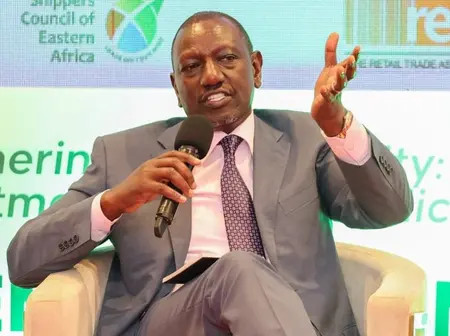
President William Ruto has said that the Hustler Fund has not only bridged market failures but also laid the foundation for a revolutionary credit system that is now benefiting 26 million Kenyans.
Speaking on Wednesday, August 6, 2025, during a presidential roundtable engagement with the Kenya Private Sector Alliance (KEPSA), hosted by the Ministry of Investments, Trade and Industry, Ruto emphasised that the fund was built to correct a broken financial ecosystem that had long excluded millions.
“We had three reasons why we rolled out the Hustler Fund. It was supposed to correct the market failure, which we did,” Ruto told the gathering, held under the theme Strengthening Government-Private Sector Collaboration for Investment, Trade and Industry-Led Economic Growth.
The President noted that the government’s first major milestone was delisting 7 million Kenyans from Credit Reference Bureaus (CRBs), giving them a second chance at financial inclusion.
According to Ruto, the fund has now generated critical credit behaviour data for 26 million individuals, an undertaking that would have cost the government millions in research, consultancy, and infrastructure.
“We now have data on the credit behaviour of 26 million Kenyans. 2 million Kenyans wake up every morning to borrow money from the Hustler Fund,” he said.

He added that 650,000 Kenyans have since progressed to bridge loans, accessing up to Ksh150,000, solely based on their credit discipline.
“The only collateral they have is their credit behaviour over the last year,” Ruto stated.
In what he described as a break from traditional models of logbooks and title deeds, the President revealed that the government has institutionalised an alternative collateral mechanism: credit rating based on real-time borrowing behaviour.
“Today, credit behaviour licenses you to borrow more. Banks are now beginning to absorb people who have come through the Hustler Fund by checking their credit behaviour,” Ruto said.
The head of state maintained that this is part of his broader vision to democratise access to finance and expand financial inclusion beyond elite segments of society.
The roundtable forum brought together top business leaders, policymakers, and stakeholders to align public-private strategies for economic growth.

Leave a Reply